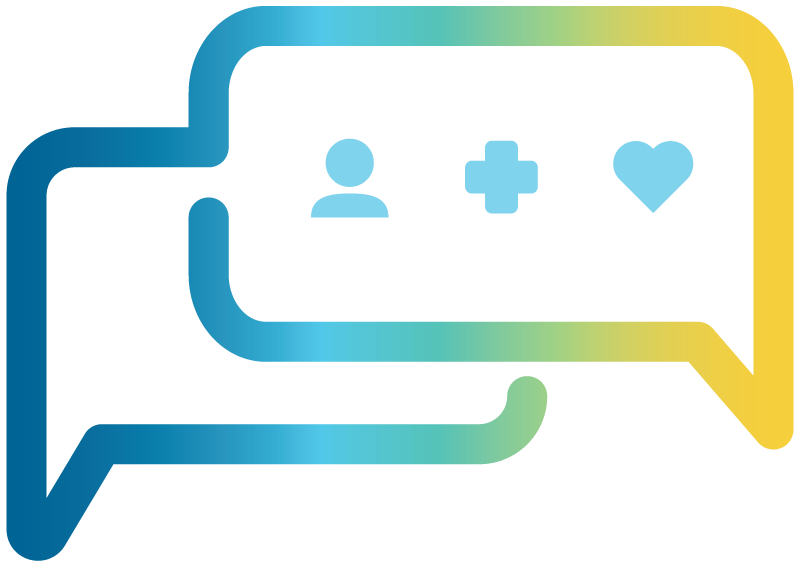Think Differently.
Therapy Reimagined.


The first phase of treatment is focused on establishing connection: connection with your therapist, with your peers, and most importantly with yourself. Engaging with a new therapist can be challenging. At Avocy, we make it easy. Initially you’ll meet with your therapist twice a week to build connections, identify your goals, and work together on a customized treatment plan that works for you. Through once-a-week group therapy, you’ll interact with peers in your local community with similar challenges. Most importantly, in phase 1 you’ll gain a better understanding of your own emotions. While everyone’s journey is unique, most often Phase 1 lasts between four and six weeks.
It can feel hard to make a connection with a new therapist. Have you ever felt like you were making progress right as time ran out? Then the next week you forgot where you left off? At Avocy, you’ll initially work with your therapist twice a week to make meaningful progress in week one.
Leaving treatment and returning to daily life can be challenging. At Avocy, we provide additional support through group therapy with peers from your local community. Our groups are tailored specifically for an outpatient setting and differ substantially from what most patients expect. Learn more about some of our unique groups today.
Phase 2 of treatment focuses on internal growth and development. With the understanding and insight of your unique challenges gained during Phase 1, Phase 2 focuses on change of action. Whether through the implementation of new coping techniques, self-regulating habits, more effective communication strategies, etc., the focus becomes on taking the insight learned and applying it. While regular weekly therapy continues, we encourage patients to replace their second weekly session with a couples or family session. You may have heard the phrase, “put your life mask on before assisting others”. Phase 1 focuses on you. Phase 2 focuses on the self’s integration with environment. Depending on whether you engage in couples/family therapy, Phase 2 typically lasts 6-12 weeks.
Most patients will split their therapy each week with one individual session and one family session. In this way, you’ll continue to make individual progression while improving your support systems.
At Avocy, we take a unique approach to family therapy. With a separate dedicated family therapist, you’ll progress through our generalized structure to improve communication, trust, and intimacy.
We offer specialized closed groups for specific individuals working on trauma or within a specialized community such as first responders. These are only available to those with similar experiences and have the same members each week for the duration. Build your community at Avocy.
Whereas Phase 2 focuses on growth & development, Phase 3 focuses on long-term well-being. What are your long-term goals for yourself, for your relationships, with your spirituality, and are your actions and emotions in alignment? Building on your defined sense of purpose reinforces resilience. Phase 3 is meant to build on your existing foundation, on the positive changes you’ve already made, toward the future you want for yourself. While therapy will be less frequent, you’ll maintain the network built at Avocy in the event you need additional support.
Continue therapy one to two times per month as you progress toward your one-year goals. Additional therapeutic support is available if you find yourself struggling along the way.
Phase 3 groups are available and focus more on inter-personal conflict, workplace challenges, and reinforce positive personal relationships. While not required, these groups are available for additional support as needed.

"There is consistent evidence that the quality of the therapeutic alliance is linked to the success of psychotherapeutic treatment across a broad spectrum of types of patients, treatment modalities used, presenting problems, contexts, and measurements"
FOCUS, The Journal of Lifelong Learning in PsychologyAcceptance Commitment Therapy ("ACT")
ACT is an empirically based psychological intervention that uses acceptance and mindfulness strategies along with commitment and behavior-change strategies to increase psychological flexibility.
Existenialism
Existenialism focuses on concepts that are universally applicable to human existence including death, freedom, responsibility, and the meaning of life.
Eye Movement Desensitization and Reprocessing ("EMDR")
Eye Movement Desensitization and Reprocessing is a form of exposure therapy utilized for processing traumatic memories such as PTSD using bilateral movement.
Cognitive Behavioral Therapy ("CBT")
Cognitive behavioral therapy is a psycho-social intervention that aims to reduce symptoms of various mental health conditions, primarily depression and anxiety disorders. Cognitive behavioral therapy is one of the most effective means of treatment for substance abuse and co-occurring mental health disorders.
Dialectic Behavioral Therapy ("DBT")
Dialectic Behavioral Therapy is an adaptation of CBT designed to help patients struggling with particularly intense emotions and intense stress.
Mindfulness-based CBT
Mindfulness-based cognitive therapy is an approach to psychotherapy that uses cognitive behavioral therapy methods in collaboration with mindfulness meditative practices and similar psychological strategies.
Narrative Therapy
Narrative therapy helps patients identify their values and the skills associated with them. It provides the patient with knowledge of their ability to live these values so they can effectively confront current and future problems.
At Avocy, we take a different approach to group therapy that focuses on meaningful, reflective, and relatable topics. We don’t utilize traditional treatment groups such as worksheets, processing, or psychoeducation. Rather, our groups focus on the challenges of the human condition: recognizing our own ego, reframing in anger, understanding our own emotions, recognizing toxicity, and much more. What you’ll find at Avocy is a group peers focused on overcoming similar challenges in their recovery journey.
Work with your group and therapists to discover what drives you today and learn how to live with our own narratives and live joyfully.
The language we use and the methods we use to communicate help to define how others see us. Working together, we can change how we interact with others to improve our own lives.
Work means conflict and navigating this conflict successfully and with professionalism is a challenge for everyone. With your group, explore common ways to work through conflict productively.
The journey leading to recovery can often damage the relationships most important to us. One of the critical components of the Avocy program is working with you and your love ones to repair and rebuild relationships that have been wounded by our behavior.
Recovery is a life long journey. Here at Avocy we believe that environment is critical to success. We work with your loved ones to help you create an environment that fosters recovery and growth.
